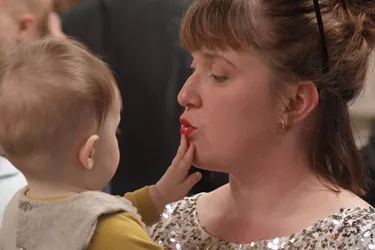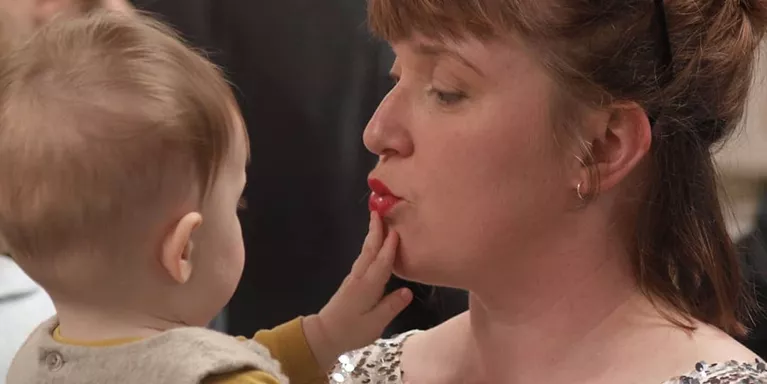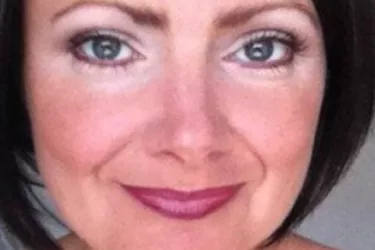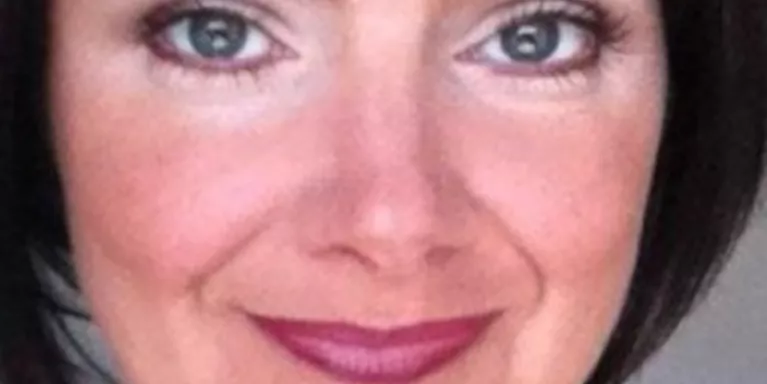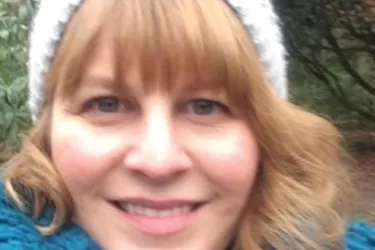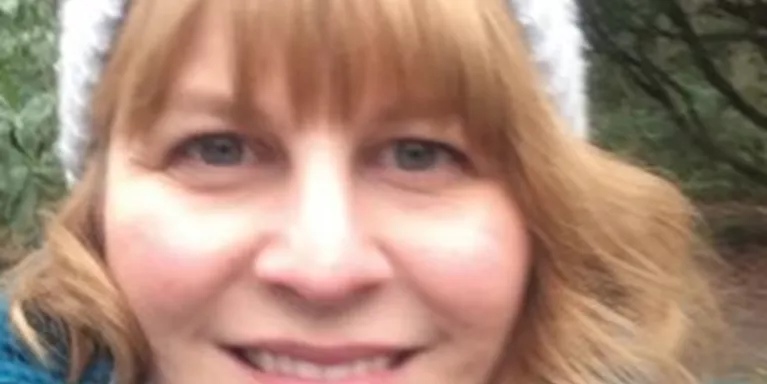A rainbow a day: how I'm being kind to myself during a pandemic
Ellen, from Cardiff, describes how she’s utilising techniques she learned on a local Mind course to take care of her mental health during lockdown.
I have prided myself for some time on being cheery. On being the sounding board for people who struggle, but never being a struggler myself. Then I had a baby. I was astonished to find myself struggling. I was immensely naïve. I was so sure that because I was so desperate to become a mum that I would be fine. What a numpty!
I found myself depressed, drowning in my guilt. Not recognising myself. Not knowing how to ‘rebrand’ myself as No Longer Cheery. I spent every drop of energy hiding this from everyone.
I tried to get to my GP. On the bad days, I couldn’t cope with trying hundreds of times to get through on the phone. On the good days, I couldn’t face bringing myself down by failing to get through. More than once I went into the surgery, only to be told I couldn’t get an appointment. I would find myself sitting beside the pushchair in the lift sobbing.
Then, I moved house and switched to a new doctor’s surgery. They had online booking! I could get in to see the GP without the struggle of multiple calls. I had to wait two weeks for the appointment, but by this point I had waited more than two years so it was a wait I was delighted to put up with.
My GP took me very seriously and diagnosed me with post-natal depression. I was put on a counselling waiting list, prescribed medication and referred to a self help course at Mind Cardiff.
Just taking that first step felt AMAZING, like I’d taken a small but crucial step back to myself.
The Mind course was tremendously empowering and gave me loads of tools. I did the one on depression, and just having the space to consider my mental health was a valuable gift. The medicine has helped, and the six weeks counselling through the NHS, although there was a big wait for it, was incredible. I discovered I had stopped liking myself; being kind to myself. I decided to take myself on some dates – for long walks, swimming, to the theatre. After each date I recorded myself a voice memo thanking myself for the date, telling myself what a nice time I had.
And then Lockdown.
I could feel the anxiety, guilt and ‘stuckness’ returning with a vengeance. How to get through it?
Well, I don’t know. So far, so… sort of ok. I am swapping childcare shifts with my partner to have time to myself. I am creating. I spent many happy hours creating a micro-short film, an animation about how I am trying to take care of my mental health. I put it on YouTube and have been thrilled with the response.
In it, I describe the rainbow of my ‘happier head’, and share my philosophy of accomplishing five of the seven colours of the rainbow a day.
For instance, red is for power, so I try to do something powerful. My favourite way to do this is to stomp around the house – a great way to release some tension!
For me, green is for nurture: social contact is very important to me, so I’m using technology to stay connected. I’m being kind to myself and nurturing my body and soul with good food and quality programming – I’m discovering so much more when I give myself time to enjoy things.
Watch Ellen’s micro-short film here:

I think social media is telling us that everyone else is fine right now, or there are jokes about not being okay, but I was keen to put something out there that was more truthful.
I am not okay, but I am trying hard to be okay.
And it’s okay not to be okay, as long as we can all talk about that, share it, not run from it.
That is all I have to say. I hope, in some way, this is of comfort to someone?
Ellen lives in Cardiff with her husband, daughter Peggy and cats Rigby and Prudence. She likes carbs.


Information and support
When you’re living with a mental health problem, or supporting someone who is, having access to the right information - about a condition, treatment options, or practical issues - is vital. Visit our information pages to find out more.
Share your story with others
Blogs and stories can show that people with mental health problems are cared about, understood and listened to. We can use it to challenge the status quo and change attitudes.










